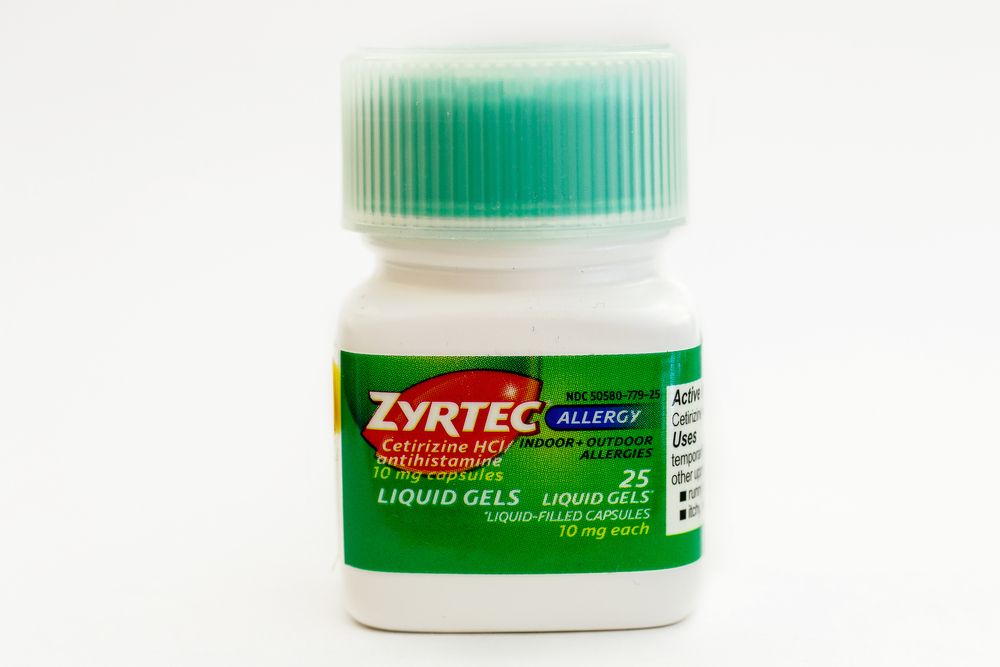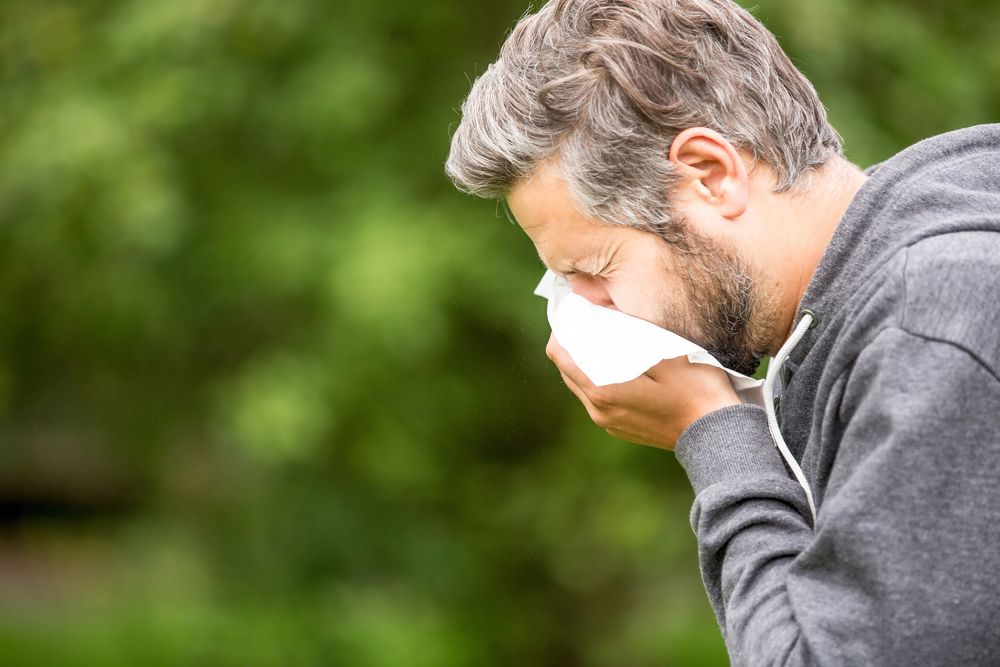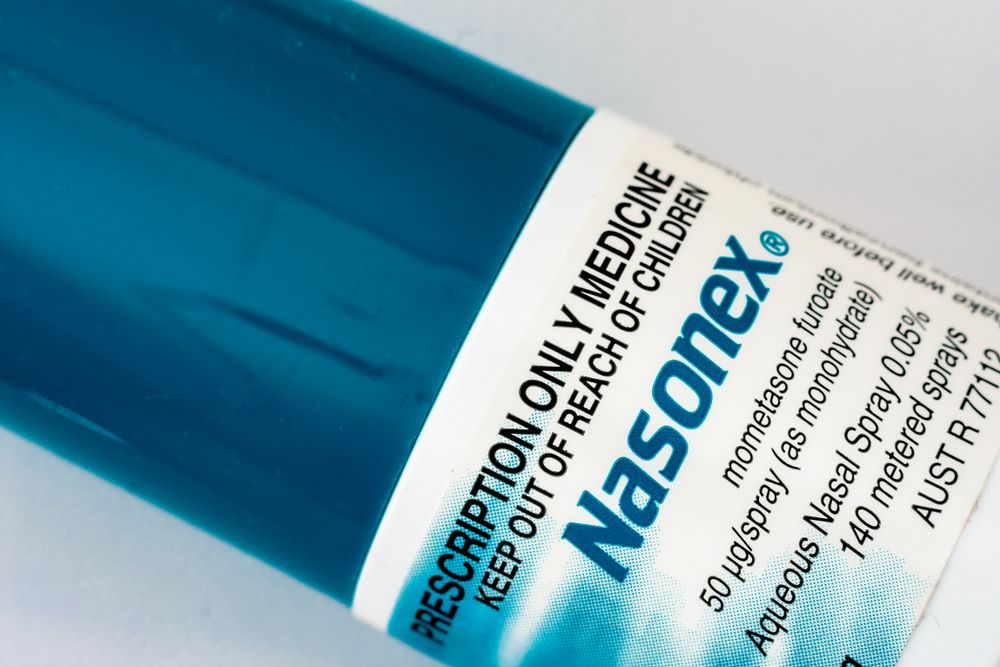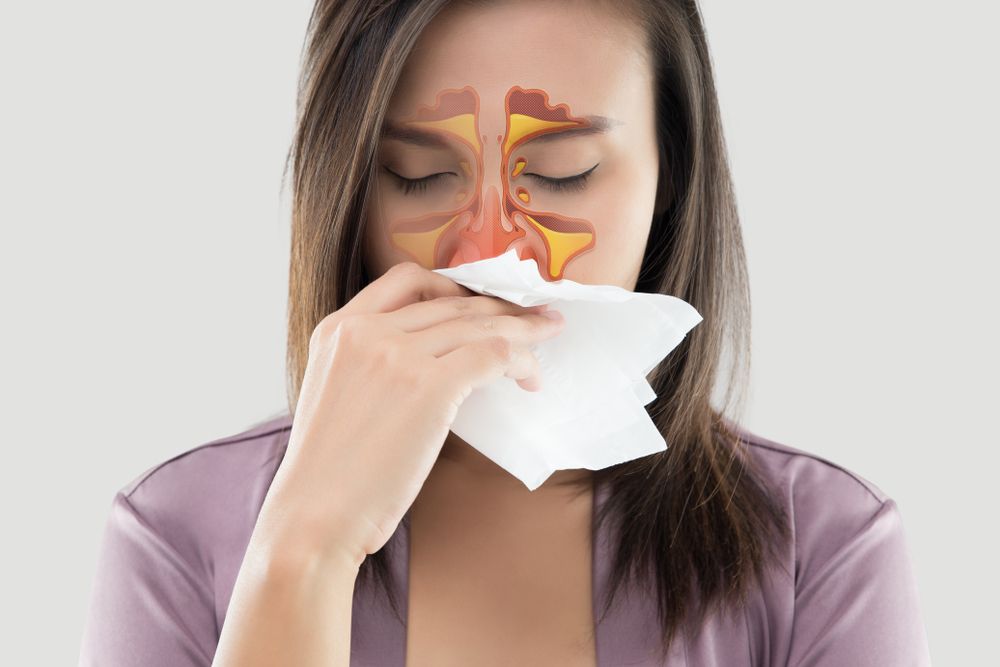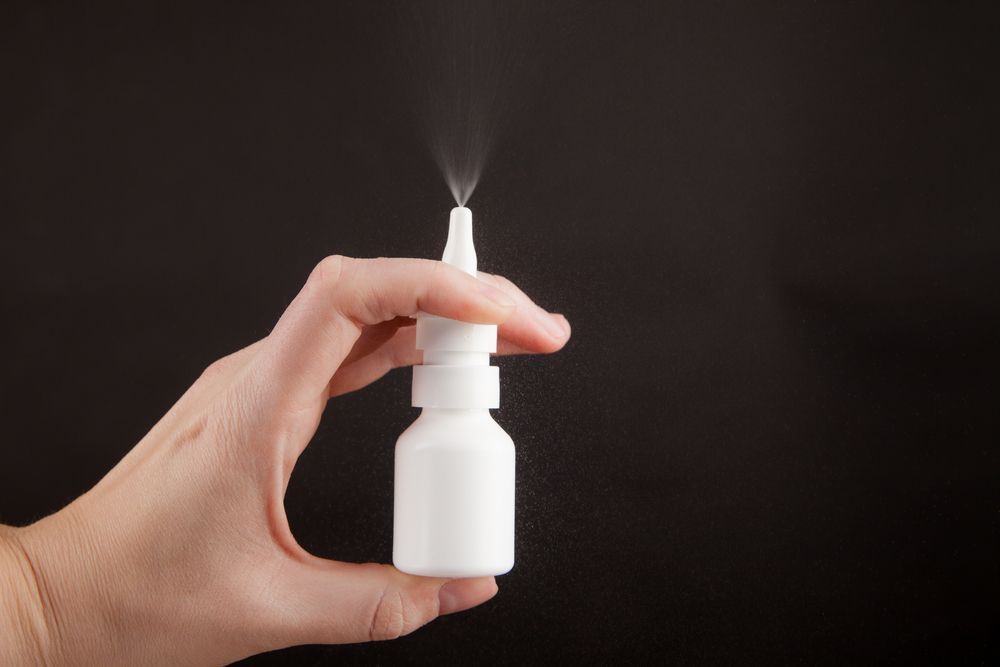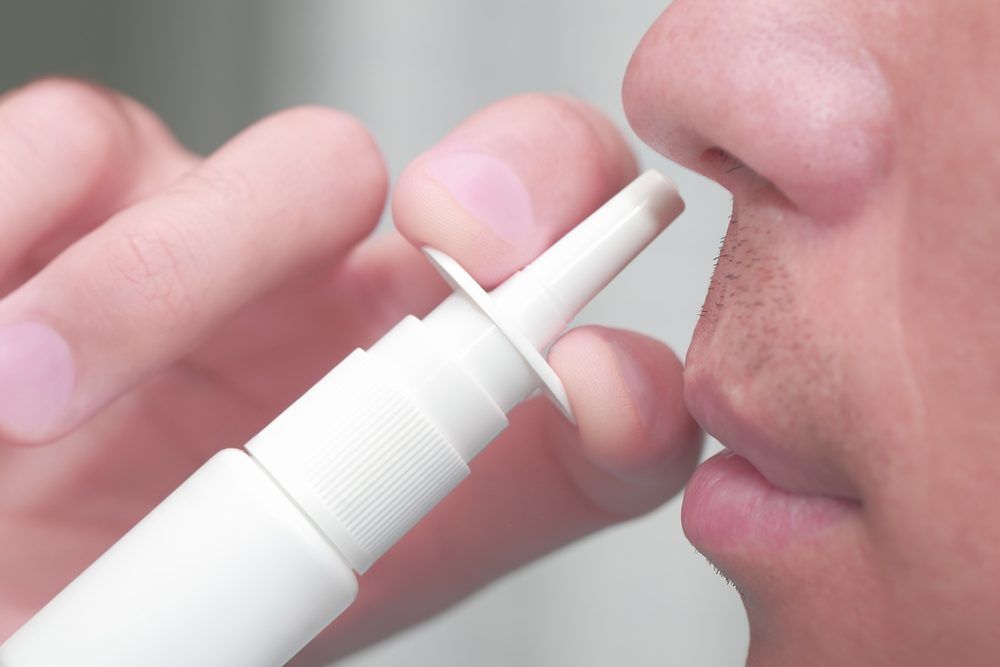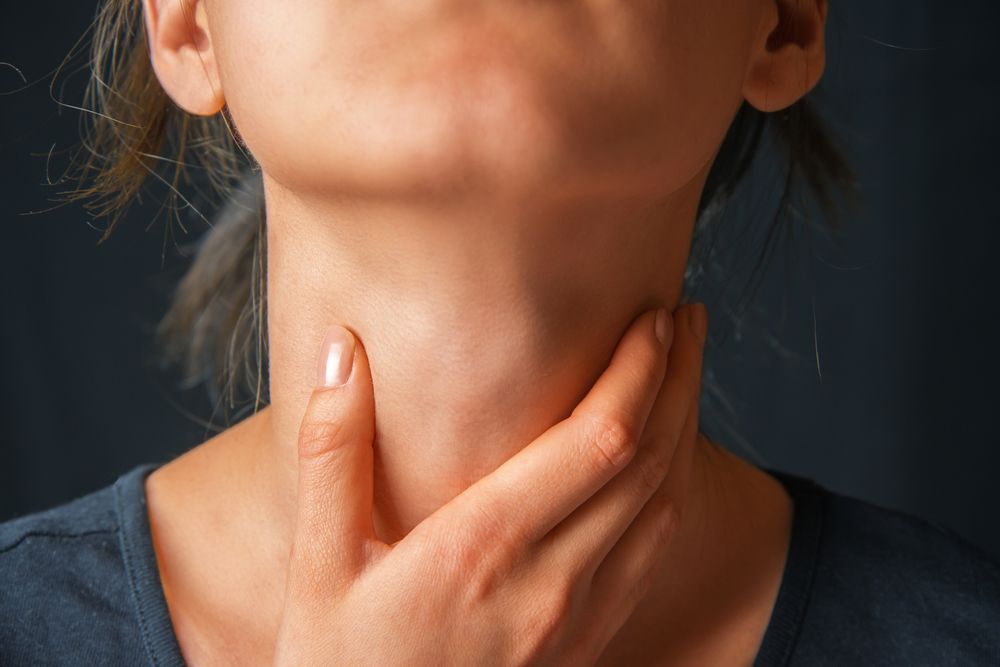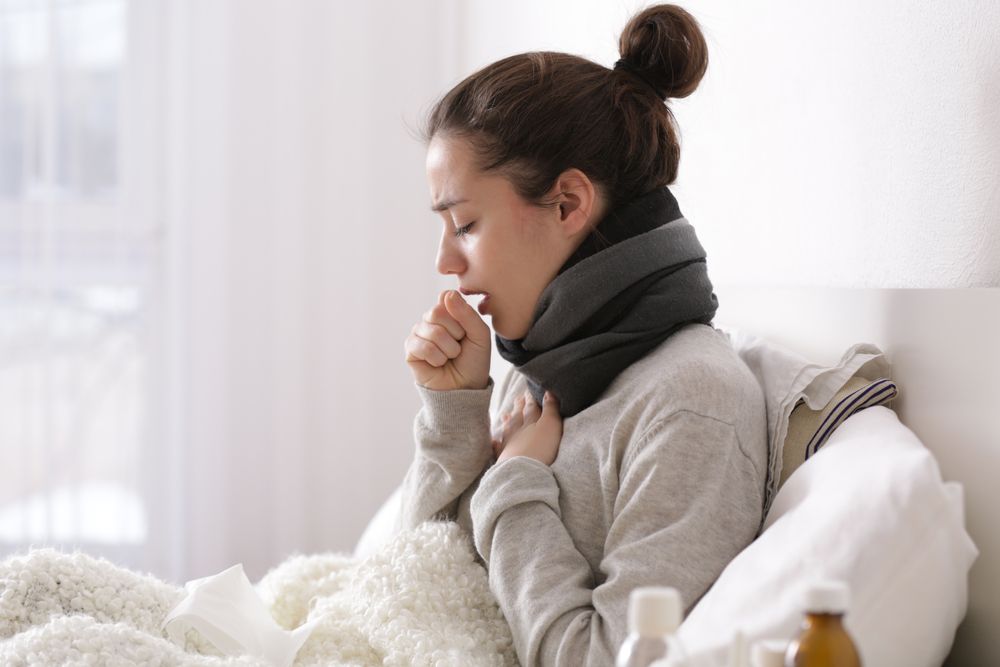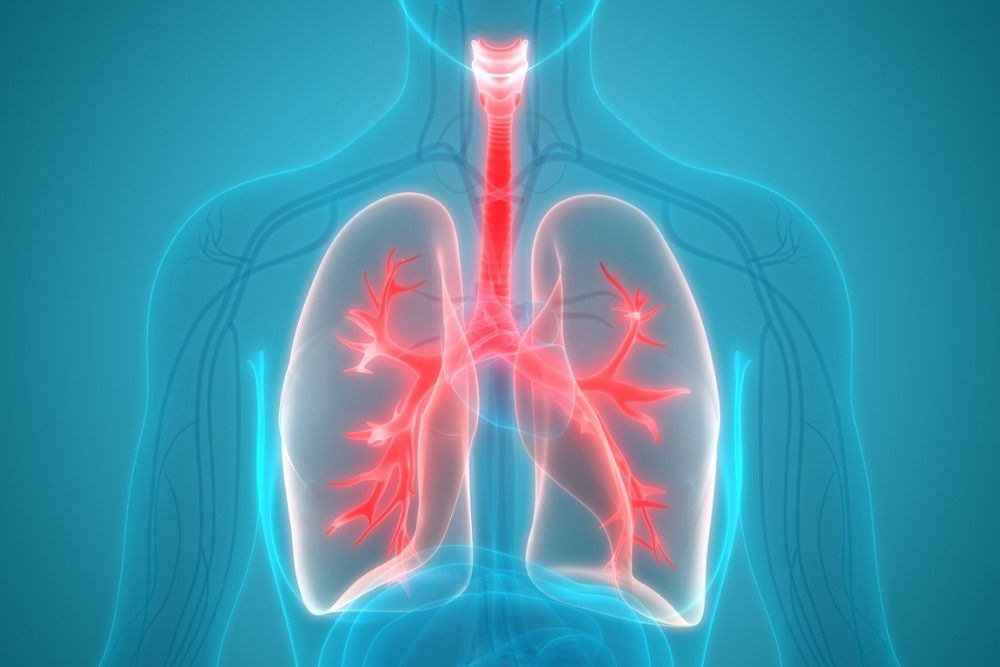Allergies are known to cause serious reactions, such as rashes, hives, anaphylaxis, and even death. This is in addition to their milder symptoms, like sneezing, coughing, watery nose, and headaches.
Headaches are not life-threatening, but they can make it hard to get things done and enjoy life. There are different types of headaches, and allergies are one cause. (Learn More)
If you feel that you have to power through headaches on a frequent basis, you may be one of the millions of Americans who deal with allergy headaches that can hamper your quality of life.
In February 2016, Current Neurology and Neuroscience Reports published a paper explaining that headaches are one of the most common complaints in the United States today. They can be tough to diagnose when they are related to allergic rhinitis.
Types of Headaches
Headaches are tough to deal with because they have so many causes. Knowing what kind of headache you have can help you.
The most common headaches are tension headaches. Harvard Medical School says that these headaches usually consist of pain on the back of the head or forehead that stays in the area. No other symptoms are generally felt.
Migraines are actually considered a chronic health condition. Up to 18 percent of women and 6 percent of men are known to have chronic migraines.
At the moment, one theory is that migraines are caused by chemicals that cause the blood vessels to expand. This creates the right environment for migraines to occur. Common symptoms are:
- Sensitivity to light and sound.
- Vomiting or nausea.
- Feeling that the pain is pulsing.
- Symptoms worsening with physical activity.
- Pain on one side.
- Symptoms that vary in severity and interrupt the ability to perform daily tasks.
- Headaches lasting hours to even days at a time.
Headaches caused by allergies have a different profile. These types of headaches are caused by hay fever, or allergic rhinitis. Hay fever is known to cause blood vessel expansion. Headaches associated with hay fever are sometimes called sinus headaches because patients often experience pain in their sinus cavities.
Additional symptoms associated with these headaches are:
- Decreased ability to smell.
- Mucus that is yellow or green.
- Pain that seems to worsen if you bend down, cough, or lean downward.
- Symptoms may be seasonal, often increasing during spring, when there is more pollen.
What Is a Sinus Headache?
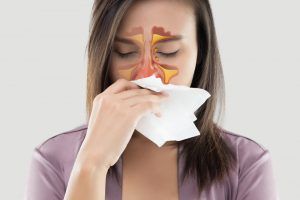
Patients who feel pain in their sinuses may eventually get a headache that can go away once the original cause of the headache is treated, per Medical News Today. Common causes for these headaches are allergies and infections like sinusitis.
Common symptoms of a sinus headache are:
- Pain on the bridge of the nose.
- Decreased sense of smell.
- Green or yellow mucus.
- Fever.
Migraines and Allergies: Are They Connected?
There appears to be some connection between headaches and allergies. People who have allergic rhinitis — a stuffy, itchy nose and difficulty breathing — because of allergies may be prone to getting headaches.
Researchers still have to conduct additional research to figure out exactly what the links are between headaches and allergies. What is known is that migraines are more common in people who have allergies.
In addition, headaches and allergic rhinitis have several symptoms in common that worsen when you experience both at the same time. These symptoms include:
- Increase in pain when you lean or bend forward.
- Nasal drip.
- Watery eyes.
- Pressure or pain at the rear of your eyes.
What the Big Deal About Headaches?
Though not a life-threatening condition, headaches can certainly make it harder for people to go about their day by:
- Decreasing productivity.
- Making it hard to sleep.
- Causing brain fog (difficulty remembering things while experiencing the headache).
- Getting worse during allergy season.
Treatments: Prevention and Home Remedies
Some simple changes and home remedies may alleviate your allergy headaches. Healthline recommends a few methods to prevent headaches.
- Use a dehumidifier.
- Make sure your chimney/furnace filter is clean.
- Opt for hard flooring instead of carpets.
- Dust and vacuum often.
Home remedies that help include:
- Salt water solution. Boil water and add one tablespoon of salt or baking soda to it. Bring some of the solution closer to your nose and breathe it in.
- Warm washcloth. Dip a clean washcloth in hot water. Hold it against your nose and cheeks for several minutes. Do this several times per day.
- Breathe in some steam. Boil some water and let it cool for a few minutes. Stand over the pot or transfer it to a heat-resistant bowl. Breathe it in for a few minutes.
Additional Medical Treatments

You may use many prevention methods or home remedies and not find relief from your allergy-induced headaches. If they do not go away in a few days or if they are causing serious disruptions in your life, speak to your doctor.
They may recommend the following courses of treatment:
- Over-the-counter (OTC) antihistamines: These can include Benadryl, Claritin, or Allegra. Read the labels and get familiar with potential side effects. Though these are available commercially, it is best to talk to your physician if you are taking something else or have questions.
- Nasal sprays. These may be OTC or available via prescription. They include brands like Rhinocort, Flonase, and Nasonex.
- Allergy shots. Your doctor will oversee these injections if they are used to treat you. They expose you to allergens and slowly make you immune to them. The process may take several years to be effective.
Frequently Asked Questions
What are some common causes of headaches?
As stated by Harvard Medical School, headaches can have a variety of causes, including:
- Sinus infections.
- Cold and flu.
- Other infections.
- Some medications (as a side effect).
- Tumors (in rare cases).
- High blood pressure.
Are headaches and migraines the same thing?
No. Headaches are less serious than migraines. There are different kinds of headaches, including tension headaches, which are the most common type. Though a tension headache can bring discomfort and even severe pain, it is not as intense as a migraine.
In addition to pain on your head, migraines also cause sensitivity to light or sound, temporary vision loss, temple pain, and even vomiting. Migraines are more likely to make it hard to get things done.
What does hay fever (allergic rhinitis) have in common with migraines?
Scientists have found a link between hay fever and migraines. However, they have not discovered exactly why these two things seem to occur together so often.
Research shows that people who experience allergic rhinitis are more likely to get migraines. Both of these afflictions tend to affect the same parts of the body, such as your nose, face, and eyes.
References
What to Do About a Sinus Headache. (February 2018). Medical News Today.
Is There a Link Between Sneezing and Migraines? (April 2019). Verywell Health.
Allergic Rhinitis and Chronic Daily Headaches: Is There a Link? (February 2016). Current Neurology and Neuroscience Reports.
What Type of Headache Do You Have? Harvard Medical School.
Allergy Headaches. (June 2018). Healthline.
What’s the Difference Between Migraine and Headaches? (July 2017). Healthline




